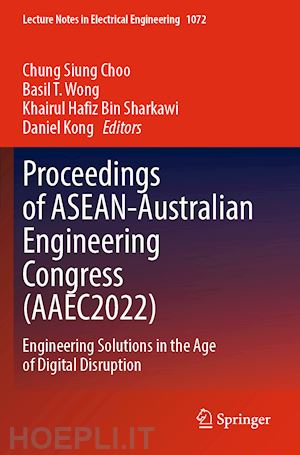Chung Siung Choo is Senior Lecturer at Swinburne University of Technology, Sarawak Campus. He obtained his B.E. (Civil Engineering) (1st Class Honours) in 2010 and subsequently his Ph.D. in 2015, both from Swinburne University of Technology in the field of geotechnical engineering, focusing on micro-tunnelling in the form of pipe jacking. His research interests include rock characterisation, trenchless technologies, deep learning in tunnelling, advanced modelling of soil behaviour and geo-education. He is Chartered Professional Engineer (CPEng) registered with Engineers Australia and Professional Engineer registered with the Board of Engineers Malaysia. Dr. Choo is currently Nominated Member of Technical Committees under the International Society for Soil Mechanics and Geotechnical Engineering (ISSMGE), namely TC105 Geo-Mechanics from Micro to Macro, and TC309 Machine Learning and Big Data. Currently, he also serves as Committee Member for Engineers Australia Malaysia Chapter, the Malaysian Geotechnical Society and the Malaysian Association for Trenchless Technology.
Basil T. Wong graduated from the University of Kentucky, USA, in 2006 with a Ph.D. in Mechanical Engineering specialising in thermodynamics and fluid mechanics/dynamics. He is Professor in Mechanical Engineering in the Faculty of Engineering, Computing, and Science at Swinburne University of Technology Sarawak Campus, Malaysia. He is also Chartered Engineer affiliated with the Institution of Mechanical Engineers and Professional Engineer under the Board of Engineers Malaysia. His research focuses on heat transfers and energy conversions at the nanoscale, light scattering in participating media and energy-saving mechanisms in building HVAC implementation. He has authored a monograph on thermal transport at the nanoscale with application to nanomachining, which was used as a reference book for his “Nanoscale Thermal Science” graduate classes back in the USA, and he published 70 articles in reputed journals and conferences. As Principal Investigator, he has won multiple national grants and reviewed journal articles for many reputed international journals related to heat transfer, energy and radiative transfer. In addition, he has served as External Grant Proposal Reviewer on multiple occasions for the French National Research Agency (ANR) and the Malaysian Ministry of Higher Education (MOHE).
Khairul Hafiz Sharkawi earned his Ph.D. from Universiti Teknologi Malaysia (UTM) in the field of Geoinformatics (GIS), specialising in 3D GIS. His research interests include 3D change detection, 3D city modelling, digital twin and their applications in the context of smart city. In his current capacity as Head of Research and Product Development at Sarawak Digital Economy Corporation (SDEC) Berhad, Dr. Khairul Hafiz Sharkawi leads his team in the pursuit of high-impact research aimed at developing new digital technologies with real-world applications. Healso leads the Centre of Excellence (CoE) for Digital Economy, aiming to foster partnerships between government, universities and industries, to intensify collaborations and paving the way for the adoption of cutting-edge digital technologies, driving innovation and propelling Sarawak's digital economic landscape into a prosperous future. Their collective efforts focus on translating innovative ideas into implementable and marketable products that drive economic growth. Additionally, his team collaborates closely with industry partners to develop viable solutions in areas such as smart urban farming, smart aquaculture and smart city applications, contributing to the development of Sarawak's digital ecosystem.
Daniel Kong is Course Director in the Department of Civil Engineering at Monash University Malaysia. He completed his Ph.D. in Structural Engineering and is Registered Chartered Engineer. Before joining Monash, he spent 13 years in Australia leading numerous research projects, including the development of novel concrete for elevated temperature applications (at Monash University Australia and the Concrete Institute of Australia), large-scale structural fire applications for building materials (at Swinburne University and Victoria University) and climate change impacts on port infrastructures (at RMIT University and Ports Australia). Daniel's expertise extends to leading a vibrant research team of postdoctoral fellows, research assistants and postgraduates in novel materials and cement and concrete applications. He has secured research grants valued at USD 300k, including international grants with strong industry collaboration from local governments, concrete industries, engineering consulting companies and material developers.











